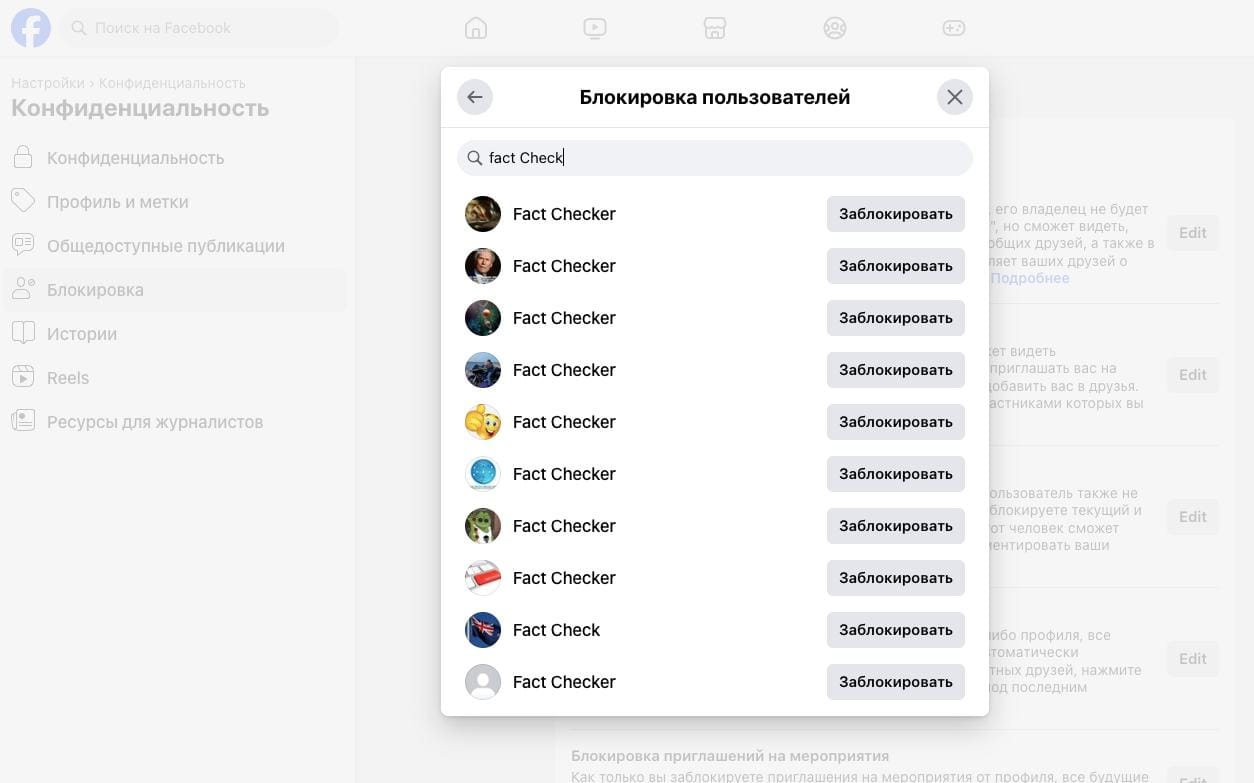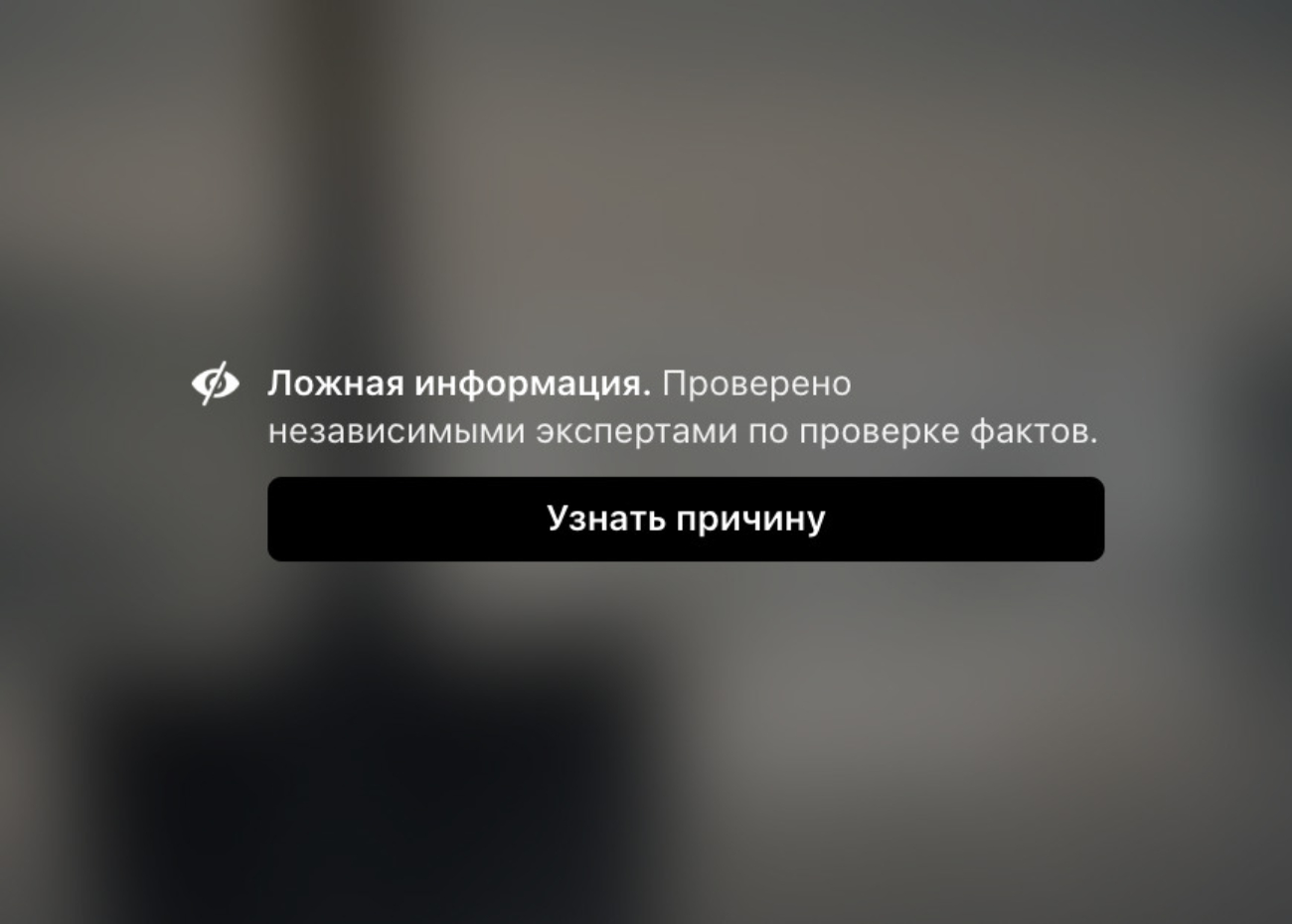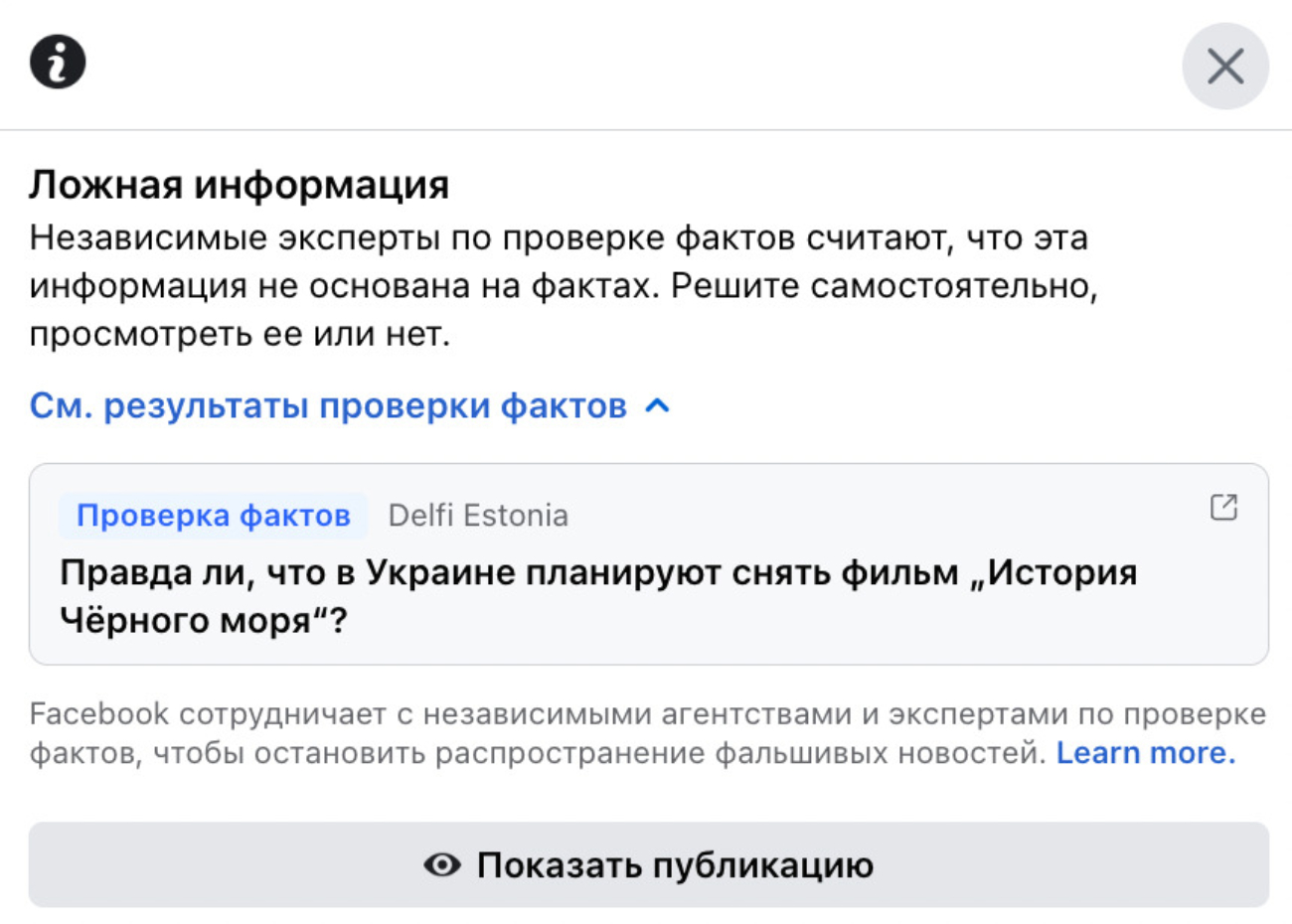Posts on how to prevent verification and, as a result, deletion of posts or banning of users have been widely circulated on the social network: supposedly it is necessary to block users whose names contain the words fact check. We decided to see if this could work.
In the Russian-speaking segment of the social network Facebook* is very popular instructions, as possible avoid verification of posts by fact checkers and possible subsequent receipt of a mark of unreliability or blocking “for violating moral standards due to a nonsense word or phrase.” Users advise in settings block all users whose names in one form or another mentioned fact check. Allegedly, if you repeat this from time to time procedure, Facebook will stop "making any claims whatsoever." Such posts, gaining hundreds of reposts, are accompanied by screenshots with step-by-step instructionsexactly how to do this. Some users called such actions are “fighting spy bots.”
First of all, it’s worth understanding what a fact-checking program is. Facebook and what fact checkers do within its framework. To prevent the spread of misinformation, Meta*, which owns the social networks Facebook, Instagram* and WhatsApp*, cooperates with fact-checking specialists from more than 90 fact-checking organizations around the world (for example, from the relevant departments at the Associated Press and Reuters news agencies). Such specialists evaluate the veracity of statements in posts by conducting their own investigations, and when rendering a verdict, attach a link to the corresponding analysis posted on their resources. They can check a post with potential misinformation that they came across even in their own news feed, or receive a review request from Meta if, for example, other users reported the post. First of all, posts containing relevant information on trending topics are checked. Fact checkers do not block anyone or delete anything - on posts containing false information, a plaque with the appropriate mark simply appears. If a user systematically publishes fakes, then platform may limit the publication of his posts in recommendations, disable the possibility of monetization, or apply some other measures aimed at limiting the distribution of such content.
At the same time, misinformation in posts is not included in the list of reasons why content can be removed and page temporarily or permanently block (the only exception is fakes about COVID-19 or vaccination that are potentially dangerous to the life and health of people). Such radical measures apply to posts with calls for violence, fraud, bullying, images of sexual acts, etc. These violations are detected automatically by built-in Facebook algorithms or by platform moderators after user complaints. Therefore, protect yourself from punishment “for violating moral standards because of a nonsense word or phrase,” as the viral post says (it is not entirely clear what the authors of the posts mean by this definition, but we can assume that we are talking about deleting content, for example, for use of swear words), blocking fact checkers will not work in any way - these two things are simply not connected in any way. Facebook's rules specifically to be specifiedthat inaccurate content can be deleted, and measures taken against the user if the post not only contains misinformation, but also violates certain community standards.
If we talk about the possibility of protecting ourselves from checking posts specifically for authenticity, then the method described in the virus instructions is unlikely to be effective. The point is that fact checkersthose involved in verifying information are real people. Most of them also have their own personal or business accounts on Facebook, under which they check posts through a special program. Viral screenshots suggest blocking all users whose usernames include the words fact check or fact checker in various spelling variations, but there is no reason to believe that fact checkers are adding these words to their usernames. It would make some sense to block real fact-checker pages, but the platform does not disclose their names anywhere, so identifying them and blocking access to your page is not at all as easy as the instructions say.

Finally, confirmation that these actions did not have any effect is the very fact of writing this analysis - after all, if all fact checkers, after following user actions according to the instructions, were deprived of the opportunity to see such posts, “Verified” simply would not have known about their existence.
Thus, the actions described in the viral instructions on preventing blocking and restricting the actions of Facebook users are ineffective for several reasons. First, it is impossible to identify real fact checkers from the Meta fact-checking program using the proposed method. Secondly, publications found to be unreliable are not deleted, and their authors are not blocked - with rare exceptions. Such measures most often result from violations of platform rules, which are monitored not by fact checkers, but by algorithms and moderators of the social network, so blocking fact checkers cannot in any way protect against a ban.
*Russian authorities think Meta Platforms Inc., which owns the social networks Facebook and Instagram and the WhatsApp messenger, is an extremist organization; its activities in Russia are prohibited.
Cover photo: Facebook Ilyana Maskaeva
Read on the topic:
- Delfi. How do fact checkers work on Facebook?
- Is it true that Facebook put a “False Information” warning on a post for its title “Cats have always ruled the world”?
- Can your post prevent Facebook, Instagram or VKontakte from using your photos and other content?
- "Afisha Daily". Facebook mistakenly blocked the French city's page. Its name was mistaken for a curse
If you find a spelling or grammatical error, please let us know by highlighting the error text and clicking Ctrl+Enter.








